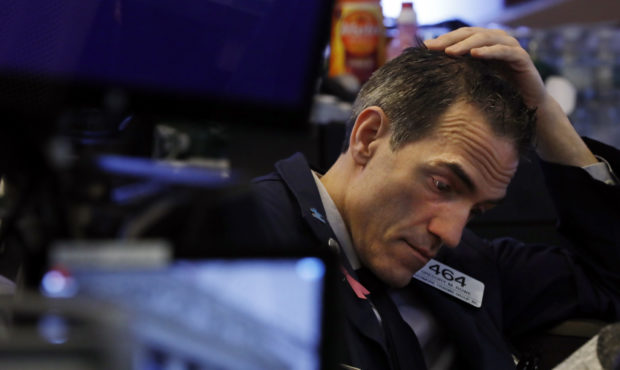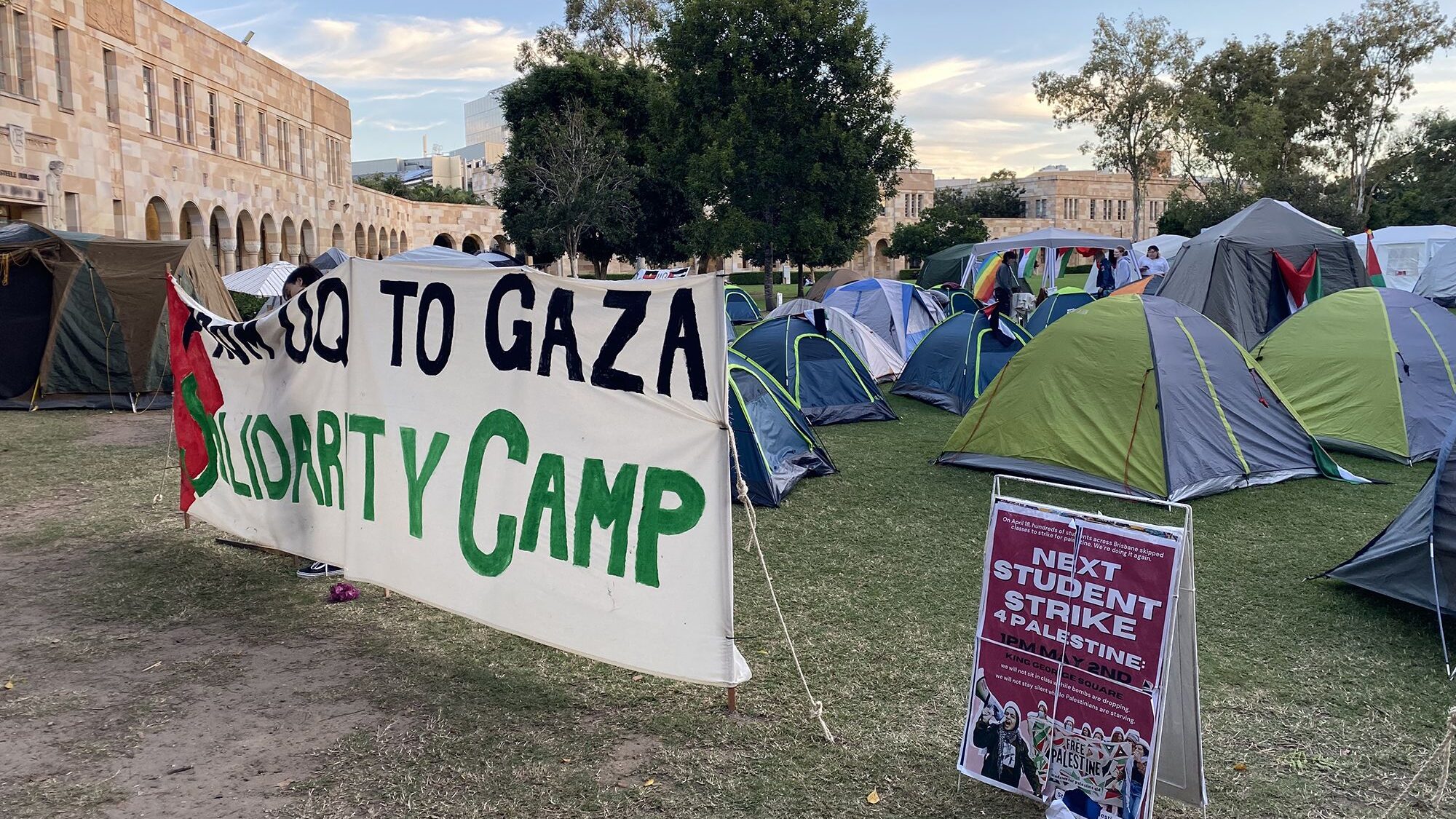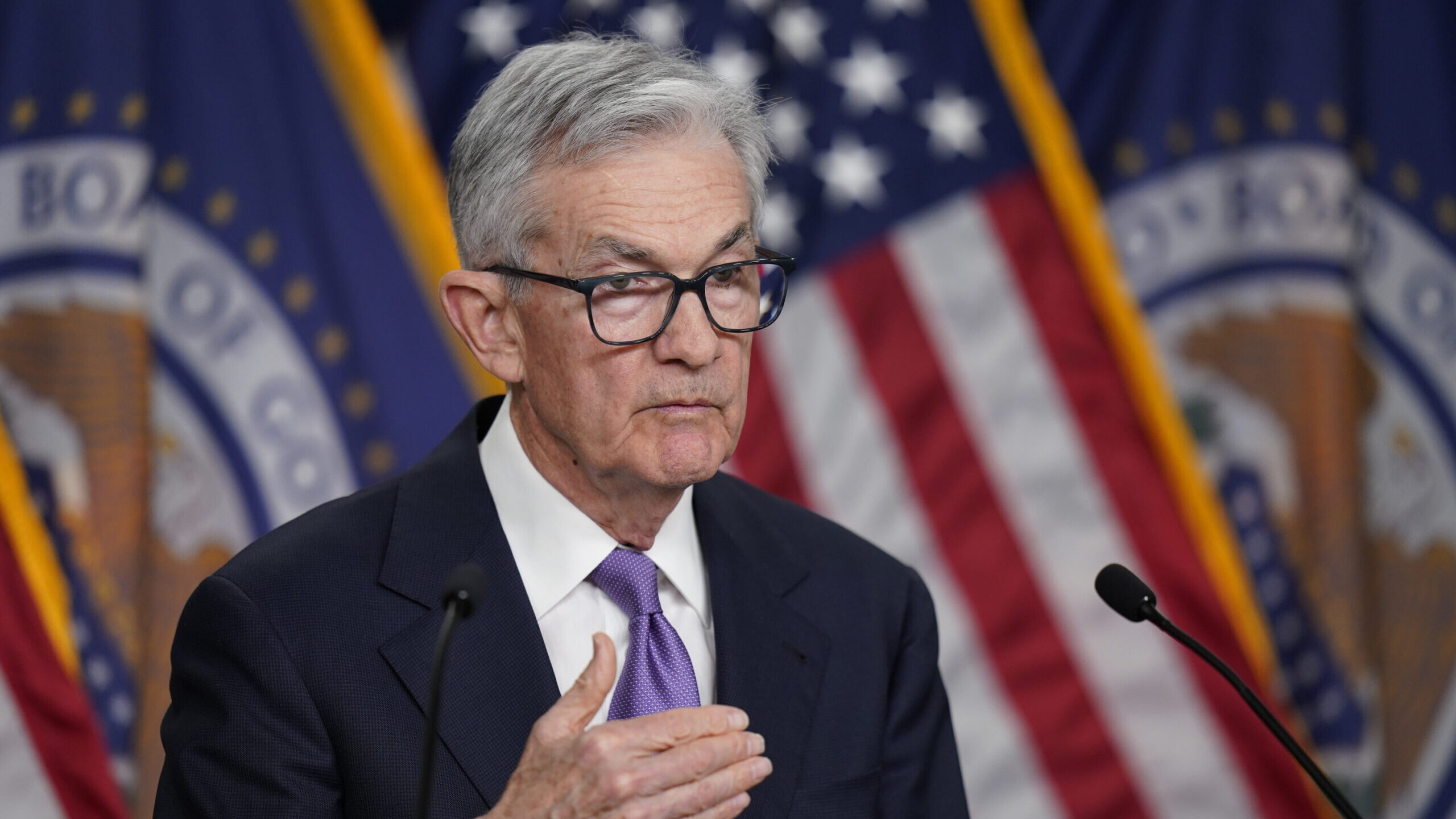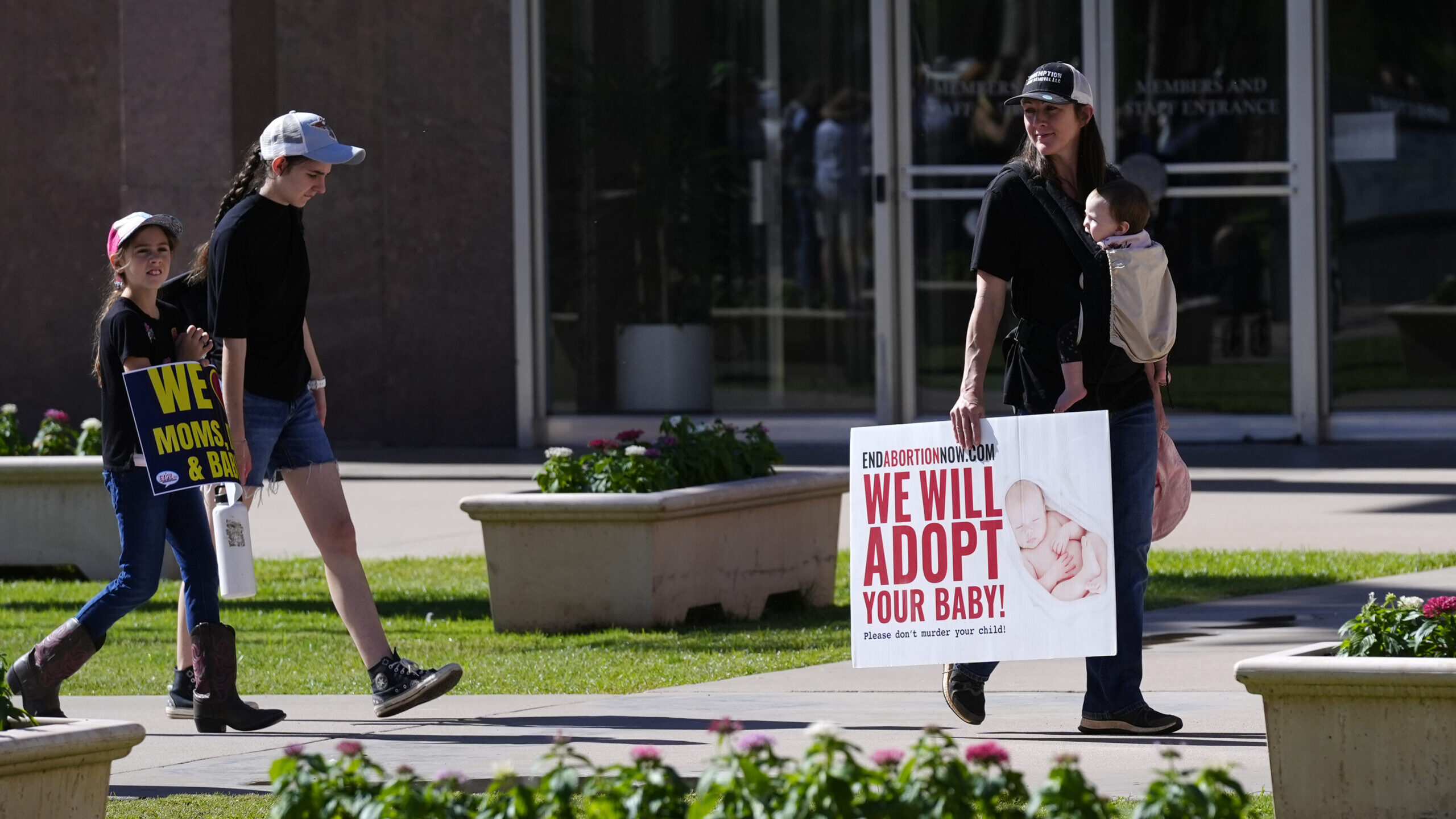S&P 500 index drops 7%, triggering a 15-minute trading halt
Mar 9, 2020, 5:46 AM | Updated: Mar 12, 2020, 9:25 am

Trader Gregory Rowe prepares for the day's activity on the floor of the New York Stock Exchange, Monday, March 9, 2020. Trading in Wall Street futures has been halted after they fell by more than the daily limit of 5%. (AP Photo/Richard Drew)
(AP Photo/Richard Drew)
NEW YORK (AP) — Stocks plunged 7% on Wall Street Monday, triggering a trading halt for 15 minutes. The steep drop followed similar falls in Europe after a fight among major crude-producing countries jolted investors already on edge about the widening fallout from the outbreak of the new coronavirus. Indexes in London and Frankfurt dropped by more than 7%. The benchmark for Italy, where the industrial and financial heartland was put in lockdown, fell 11%. Oil prices are down about 20%, deepening a rout that began when Saudi Arabia, Russia and other producers failed to agree on cutting output. Bond yields sank to new lows.
THIS IS A BREAKING NEWS UPDATE. AP’s earlier story follows below:
Global stock markets and oil prices plunged Monday after a fight among major crude-producing nations jolted investors who already were on edge about the surging costs of a virus outbreak.
The main stock indexes in Britain and Germany were down by almost 7%. Japan’s benchmark closed down 5.1% while Australia’s lost 7.3% and the Shanghai market in China was off 3%.
Trading in Wall Street futures was halted for this first time since the 2016 U.S. presidential election after they fell more than the daily limit of 5%. Bond yields hit new lows as investors bought them up as safe havens.
The benchmark U.S. crude price was down over 20%, the biggest daily drop since the Gulf war in 1991 to hit their lowest levels since 2016. They were down as much as 30% earlier, deepening a rout that began when Saudi Arabia, Russia and other major producers failed to agree on cutting output to prop up prices. A breakdown in their cooperation suggested they will ramp up output just as demand is sliding.
Investors usually welcome lower energy costs for businesses and consumers. But it can also hurt producers, such as oil companies. The last time crude prices fell this low, in 2015, the U.S. saw a raft of bankruptcies by smaller energy companies.
The abrupt plunge in markets added to the anxiety over the coronavirus, rattling markets and sending investors in search of safe havens like bonds.
“A blend of shocks have sent the markets into a frenzy on what may only be described as ‘Black Monday,’” said Sebastien Clements, analyst at financial payments platform OFX.
“A combination of a Russia vs. Saudi Arabia oil price war, a crash in equities, and escalations in coronavirus woes have created a killer cocktail to worsen last week’s hangover.”
In Saudi Arabia, the Riyadh stock exchange suspended trading of state-owned oil giant Saudi Aramco after its share price sank by the daily 10% limit at the opening.
Investors already were on edge about the mounting costs of the coronavirus outbreak that began in China and has disrupted world travel and trade.
Anxiety rose after Italy announced it was isolating cities and towns with some 16 million people, or more than one quarter of its population, in its industrial and financial heartland.
In Europe, London’s FTSE 100 tumbled 6.6% to 6,034 after opening down by more than 8%. Frankfurt’s DAX shed 6.9% to 10,743 and the CAC 40 in France lost 6.9% as well, to 4,793. Italy’s FTSE MIB plunged 10% to 18,713.
On Wall Street, trading in futures for the Dow Jones Industrial Average and the S&P 500 was frozen after both fell by more than 5%, a daily limit. The last time they were frozen was just after U.S. President Donald Trump was elected in 2016.
Companies have been hit by travel and other controls that are spreading worldwide as the global number of coronavirus infections rose past 110,000 worldwide.
Tokyo’s Nikkei 225 fell to 19,698.76 after the government reported the economy contracted 7% in the October-December quarter, worse than the original estimate of a 6.3% decline. That was before the viral outbreak slammed tourism and travel but after a sales tax hike dented consumers’ appetite for spending.
Hong Kong’s Hang Seng sank 4.2% to 25,047.42. The Shanghai Composite Index declined to 2,943.29.
The S&P-ASX 200 in Sydney retreated to 5,760.60. The Kospi in Seoul lost 4.2% to 1,954.77.
India’s Sensex retreated 6.2% to 35,255.73. Markets in Taiwan, New Zealand and Southeast Asia also declined.
Benchmark U.S. crude fell 22%, or $9.21, to $32.07 per barrel in electronic trading on the New York Mercantile Exchange. Brent crude, the international standard, lost 22%, or $10.03, to $35.24 per barrel in London.
Those are the biggest percentage drops since January 1991, when the U.S. began air strikes on Iraq and unleashed strategic reserves to cope with the disruption to oil markets.
The International Energy Agency said in a report Monday that oil demand could fall this year for the first time since the global financial crisis in 2009.
“The oil price will stay low” in the $30s per barrel, IEA chief Fatih Birol said.
The dollar sank to 102.30 yen from Friday’s 105.29 yen. Investors in Asia often buy up the Japanese currency and bonds in times of volatility. The euro advanced to $1.1416 from $1.1289.
Chinese factories that make the world’s smartphones, toys and other consumer goods are gradually reopening but aren’t expected to return to normal production until at least April. That weighs on demand for imports of components and raw materials from China’s Asian neighbors.
Apple Inc. says slowdowns in manufacturing iPhones in China will hurt its sales totals. An airline industry group says carriers could lose as much as $113 billion in potential ticket sales.
Adding to pessimism, China reported Saturday that its exports fell 17% and imports were off 4% from a year earlier in January and February after Beijing shut factories, offices and shops in the most severe anti-disease measures ever imposed.
Central banks worldwide have cut interest rates. But economists warn that while that might help to encourage consumer and corporate spending, it cannot reopen factories that are due to quarantines or a lack of workers and raw materials.
Investors are looking ahead to a meeting Thursday of the European Central Bank, which is widely expected to announce new stimulus measures.
Already last week, global stocks were sinking as the spread of the virus prompted governments to follow China’s lead by imposing travel controls and canceling public events.
The U.S. Federal Reserve’s emergency 0.5% cut in its key lending rate failed to reverse the downturn and the yield on the 10-year Treasury, already at record lows, dipped under 0.40% from 0.7% late Friday. The 30-year yield fell below 1% for the first time ever.
The yield – the difference between a bond’s market price and what investors will receive if they hold it to maturity – is an indicator of the market’s outlook on the economy. Rising market prices that cause the yield to narrow indicate investors are shifting money into bonds as a safe haven.
“Global recession risks have risen,” Moody’s Investors Service said in a report. “A sustained pullback in consumption, coupled with extended closures of businesses, would hurt earnings, drive layoffs and weigh on sentiment.”
___
Follow AP coverage of the virus outbreak at https://apnews.com/VirusOutbreak and https://apnews.com/UnderstandingtheOutbreak
___
The Associated Press receives support for health and science coverage from the Howard Hughes Medical Institute’s Department of Science Education. The AP is solely responsible for all content.













